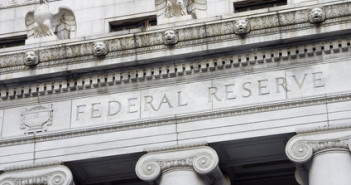While the Fed isn’t expected to change the monetary policy at the upcoming meeting, the FOMC could release a more upbeat statement, says David Song of DailyFX. On the other side of the Atlantic, the ECB could still cut the rate later in the year.
In the interview below, Song also discusses the scope for action from the new head of the BOJ, the growing pressure for a “Plan B” in the UK, and more topics.
David Song studied macroeconomic policies under a visiting scholar at the Federal Reserve Bank of St. Louis while attending the Zicklin School of Business at Baruch College, and graduated with a Bachelor of Business Administration degree majoring in finance. During his undergraduate program, David acquired a strong understanding of technical analysis from a former-president of the Market Technicians Association, and incorporates both fundamentals and technicals in his analysis. After starting at DailyFX, David authors the daily briefings for the U.S. Open as well as the Trading the News report. 
1. Could the recent positive jobs report lead the FOMC to significantly change its stance in the upcoming meeting?
Despite the upbeat U.S. Non-Farm Payrolls print for February, the FOMC is widely expected to maintain its current policy at the March 20 meeting, but we may see a growing number of Fed officials scale back their willingness to expand the balance sheet further as the world’s largest economy gets on a more sustainable path. Although there’s limited scope of seeing a significant shift in monetary policy, the statement accompanying the rate decision should sound more upbeat this time around, and the committee may start to discuss a tentative exit strategy over the coming months as the economic recovery gradually gathers pace.
2. Mario Draghi reported lower growth forecasts and hinted that the decision to hold rates was not unanimous. The economic situation in the euro-zone is not too good. However, he still managed to send a calming message and lifted the euro. What could cause the ECB to cut the rates or express deep concern about the economic situation?
As the euro-area faces record-high unemployment along with the ongoing contraction in manufacturing and service-based activity, we should see the European Central Bank continue to embark on its easing cycle. The Governing Council remains poised to push the benchmark interest rate to a fresh record-low as the deepening recession threatens price stability. At the same time, it seems as though the ECB is becoming increasingly concerned that the persistent strength in the euro exchange rate may further dampen the outlook for price growth, and we anticipate at least one more rate cut for 2013 as the headline reading for inflation is expected to undershoot the 2% target over the policy horizon.
3. The first rate decision in Japan under Kuroda is due on April 4th. Will this be the yen’s “judgment day” when action will need to meet rhetoric? Could the yen jump on exaggerated expectations for monetary easing?
There’s speculation that under Haruhiko Kuroda, the Bank of Japan will take a more aggressive approach in its easing cycle, but the new central bank head may sit pat at the April 4th meeting given the extreme shift in the Japanese Yen exchange rate. Nevertheless, as Mr. Kuroda supports the government’s pledge to stem deflation, the BoJ is likely to implement additional policies that would dampen the appeal of the Yen, and bearish sentiment surrounding the low-yielding currency should gather pace throughout the course of the year as the central bank continues to embark on its easing cycle.
4. EUR/CHF is keeping a safer distance from the 1.20 line in recent months. Could another move higher push the SNB to seize the opportunity and raise the floor under the cross to higher levels, perhaps without making an announcement?
As the risk for deflation tapers off, there’s little scope of seeing the Swiss National Bank raise the floor on the EURCHF, but we should see the central bank preserve its non-standard policy throughout 2013 as the fundamental outlook for the euro-area remains bleak. At the same time, the accommodative policy at the European Central Bank should also alleviate the downside pressures on the EURCHF, and the Governing Council may continue to embark on its easing cycle throughout 2013 as the euro-area struggles to return to growth.
5. The British government is under pressure to move away from austerity policy as its popularity slides. Could we see any change in policy anytime soon?
As the U.K. faces a growing risk for a triple-dip recession, the British government is likely to face increased criticism this year, and the push for austerity may continue to weigh on Prime Minister David Cameron’s popularity as the fundamental outlook for region remains clouded with high uncertainty. In turn, the Bank of England may come under increased pressure to expand its asset purchase program beyond the GBP 375B target, but the majority of the Monetary Policy Committee may continue to endorse a neutral stance throughout 2013 as inflation is expected to hold above the 2% target over the policy horizon.
Further reading: Could China be forced to unpeg CNY?
